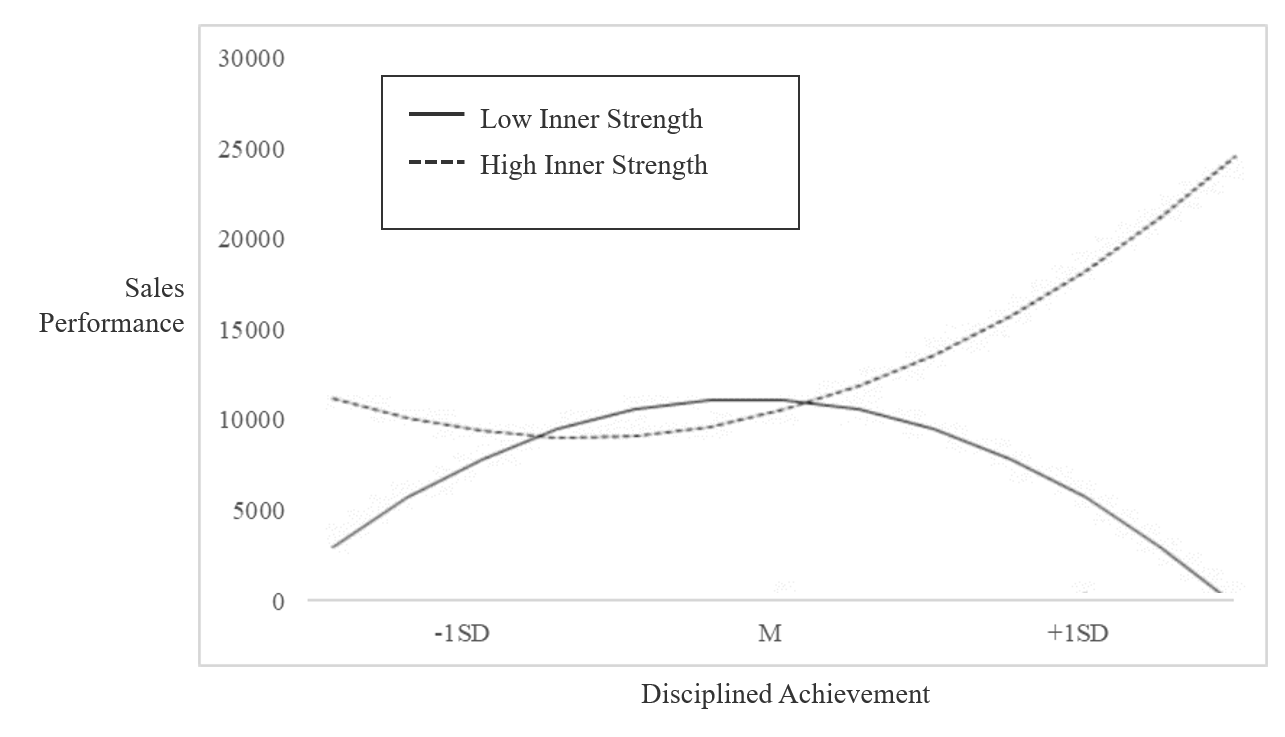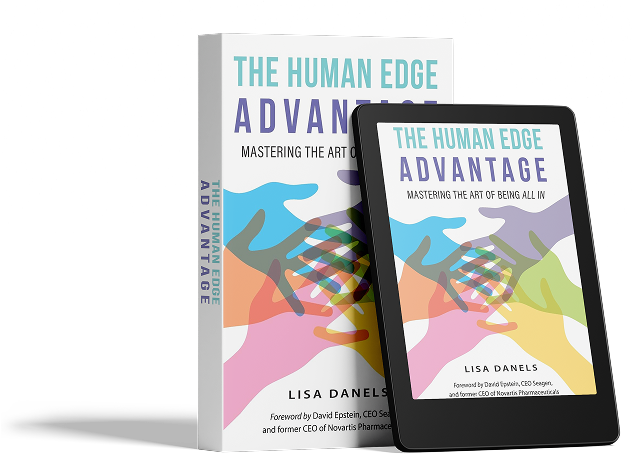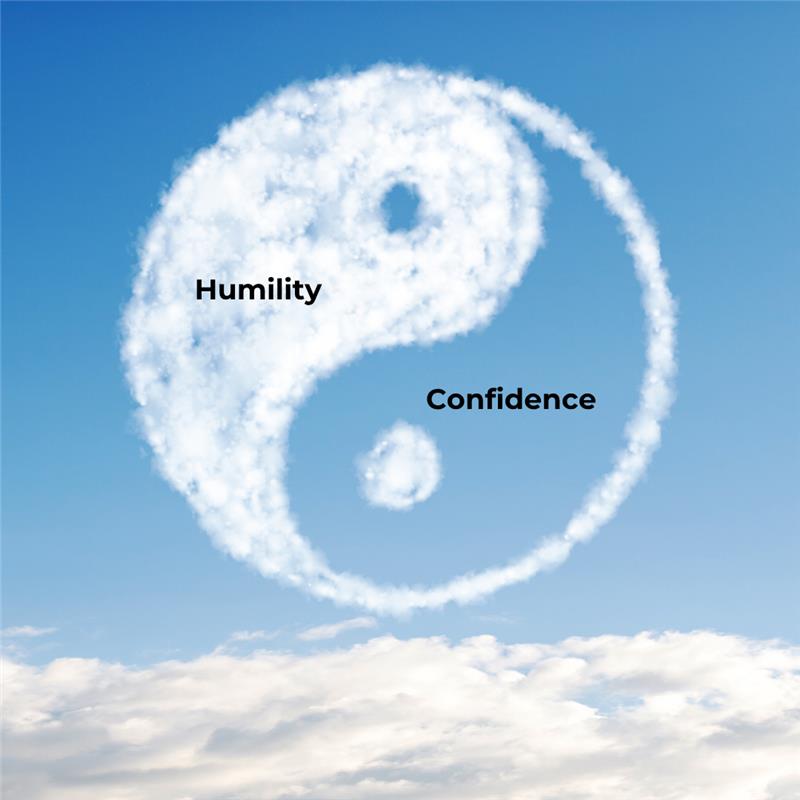If you have ever tried to persuade someone to buy your product, you will know how energy-consuming it can be. Salespeople on the frontline are often facing a significant amount of social and personal stress: you might start your day being rejected by a few prospects in a cold call, spend the afternoon with an angry customer that wants a refund, and leave home in the evening with a looming acknowledgment that you are lagging behind to reach your sales numbers.
As you can imagine, in order to achieve high and sustainable performance in sales, it is very important to have a solid Inner Power: a mix of high emotional stability, energy, and purpose. Scientific research has generally confirmed this hypothesis – adding some interesting insight into the relation between inner strength and sales performance. But which are the elements that actually define inner strength?
Emotional Stability
The most obvious is the Big Five Personality trait of Emotional Stability, which refers to the ability to remain calm, optimistic, and self-confident in challenging situations. Individuals with high emotional stability are less likely to be easily swayed by rejection or negative feedback, allowing them to bounce back quickly and continue their sales efforts. The classic meta-analyses by Mount, Barrick, and Stewart (1998) and by Hurtz and Donovan (2000) both found that emotional stability is an important predictor of sales performance. Furthermore, emotional stability is likely a predictor of salespeople turnover intentions (Bande et al., 2015).
Potency
Another important aspect of inner strength is social energy, which has often been operationalized as “potency” – a facet of extraversion. People high in potency are energetic during difficult social interactions. Also, in this case, potency is related to salespeople’s performance (Warr et al., 2005). Is indeed necessary to keep high spirits, self-assurance, and energy also through though or even hostile interactions.
Sense of Purpose
The last tile in the inner strength mosaic is the sense of purpose. Sense of purpose is the belief in doing something useful and beneficial for society, stakeholders, or the greater good. Despite the common belief that what motivates salespeople is purely financial reward, a sense of purpose is associated with increased salesperson effort, adaptivity, and performance above and beyond the desire for money, particularly for younger salespeople (Good et al., 2022).
Inner strength as a enabler of performance
Finally, one of my favorite pieces of research from Wihler and colleagues (2017) really showcases the importance of inner strength as an enabler of other salespeople’s characteristics. The authors, indeed, observed that in literature, conscientiousness (They call it Discipline and Achievement Motivation) has a curvilinear relation to sales performance: too much of it, indeed, makes salespeople careful and dutiful but also more prone to stress and affected by mistakes. However, Inner Strength (They call it stable social potency) acts as a moderator. When Inner strength is high, highly conscientious salespeople can strive for perfection without being hampered by stress and make excellent salespeople! The results are shown in the figure below – directly taken from Wihler’s paper.

As you continue on your sales journey, remember the power of coping, optimism, and purpose. Embrace the challenges, bounce back from setbacks, and stay focused on the positive impact you can make. With a solid foundation of inner strength, you have the potential to achieve remarkable success in your sales endeavors.
Keep striving, stay resilient, and embrace the journey toward sales excellence!
Read more Human Edge Insights here: Human Edge Insights
References
Bande, B., Fernández-Ferrín, P., Varela, J. A., & Jaramillo, F. (2015). Emotions and salesperson propensity to leave: The effects of emotional intelligence and resilience. Industrial Marketing Management, 44, 142-153.
Good, V., Hughes, D. E., & Wang, H. (2022). More than money: Establishing the importance of a sense of purpose for salespeople. Journal of the Academy of Marketing Science, 50(2), 272–295. doi.org
Hurtz, G. M., & Donovan, J. J. (2000). Personality and job performance: the Big Five revisited. Journal of applied psychology, 85(6), 869.
Mount, M. K., Barrick, M. R., & Stewart, G. L. (1998). Five-factor model of personality and performance in jobs involving interpersonal interactions. Human Performance, 11, 145165.
Warr, P., Bartram, D., & Martin, T. (2005). Personality and sales performance: Situational variation and interactions between traits. International Journal of Selection and Assessment, 13(1), 87-91.
Wihler, A., Meurs, J. A., Momm, T. D., John, J., & Blickle, G. (2017). Conscientiousness, extraversion, and field sales performance: Combining narrow personality, social skill, emotional stability, and nonlinearity. Personality and Individual Differences, 104, 291–296. Doi.org





